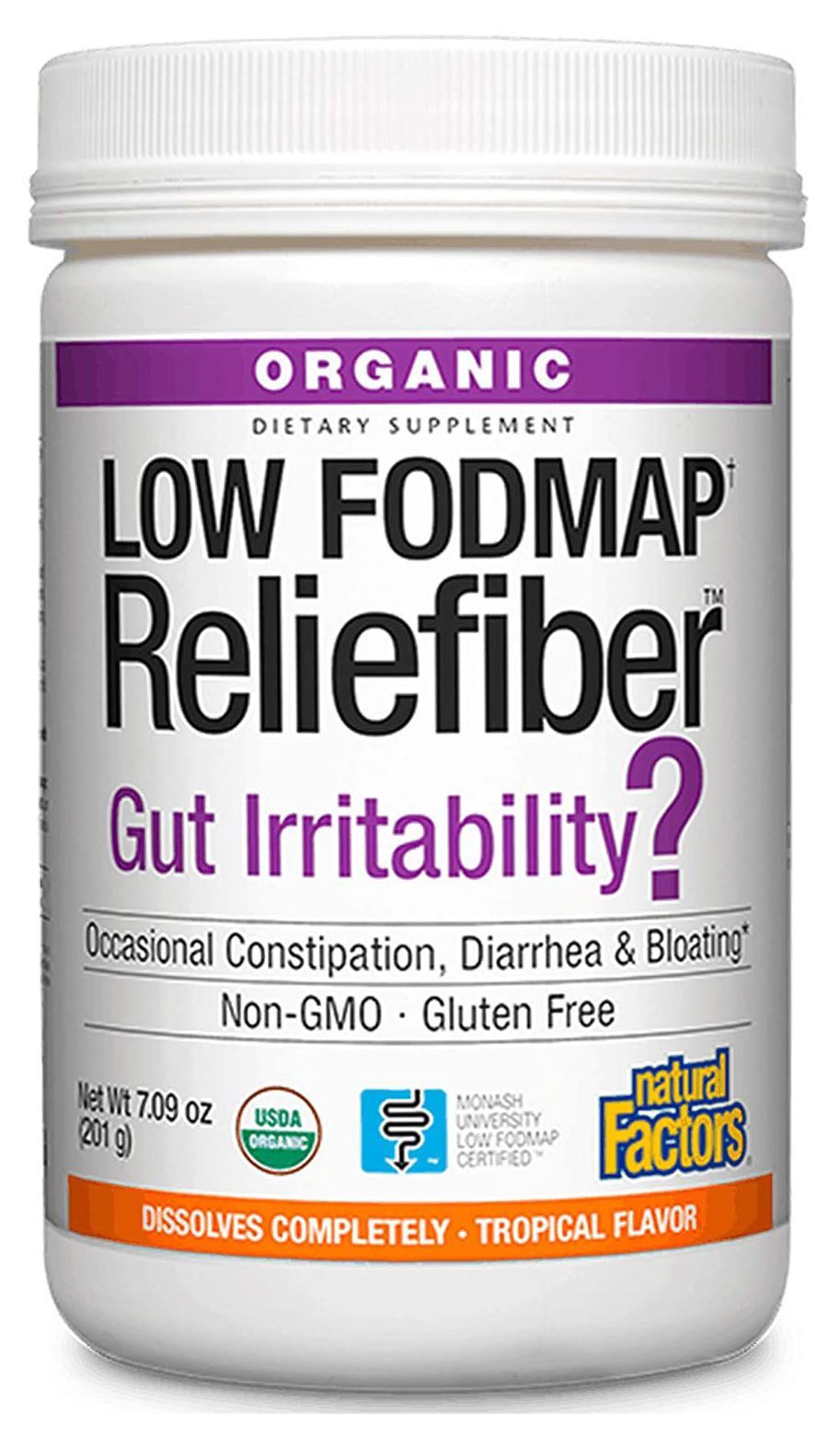Relief from Digestive Distress

Have you ever heard of FODMAPs (fermentable oligo-di- mono-saccharides and polyol)? This may be the key reason you experience occasional constipation, diarrhea, gas, and bloating. While a moderate intake of dietary fiber is important for maintaining overall health, there are several types of fiber that negatively affect gastrointestinal health for some people.
Once these fibers reach the large intestine, they bring water into the colon and are rapidly fermented, creating symptoms such as gas and bloating. Examples of FODMAPs can include fructose found in apples, lactose found in dairy products, and polyols found in cauliflower. Although some individuals can tolerate FODMAPs without any digestive concerns, many can experience bloating, gas, diarrhea, and/or constipation when consuming high- FODMAP foods.
If this sounds like you, you may be one of the many to benefit from a low-FODMAP diet. First developed by Monash University in Melbourne, Australia, the low-FODMAP diet has been shown to alleviate the symptoms of flatulence, bloating, and other bowel issues.
When we adjust our diets to include foods that have lower levels of FODMAPs, we make the job of our digestive tract easier and reduce the occurrence of unpleasant symptoms such as bloating, abdominal pain, constipation, and diarrhea. This is definitely a positive approach to supporting gastrointestinal health, however, what’s missing in a low-FODMAP diet? Better digestible fiber!
Unfortunately, many high-fiber foods and many fiber supplements are high in FODMAPs. This makes it difficult for children and adults to meet the recommended daily intake of fiber in their diets. Keep in mind that soluble fiber is essential for gut health and regularity, and fibers such as inulin, bran and wheat are high-FODMAP ingredients which are not beneficial for the digestive system.
Is there an easy solution? A low-FODMAP diet and prebiotic fiber can help by normalizing stool consistency and bulk as well as offer benefits to those experiencing constipation and diarrhea. This combination can also support healthy weight management by helping you feel full longer and supporting healthy blood sugar levels already within the normal range.
Another beneficial ingredient to include in a low- FODMAP diet is organic partially hydrolyzed guar gum (PHGG). PHGG can also help regulate digestive transit by normalizing stool consistency and bulk, offering benefits for both occasional constipation and diarrhea. PHGG acts as a prebiotic fiber to feed beneficial bacteria in the gut including bifidobacteria and lactobacilli. These bacteria produce important short-chain fatty acids (SCFAs) such as butyrate, which support the health of the gastrointestinal tract, and act as a primary energy source for colonocytes, the cells that line the large intestine. SCFAs also enhance absorption of electrolytes and water in the colon, thus slowing colonic transit and reducing the incidence of diarrhea. PHGG produces the highest levels of total SCFAs compared to cellulose and psyllium husk.
If you need digestive support, it may be time to consider a low-FODMAP diet and support from Reliefiber™ by Natural Factors! Reliefiber™ is a natural, organic, low-FODMAP prebiotic fiber. Each serving provides 5 g of Monash University Low FODMAP Certified™, organic, non-GMO, glutenfree fiber. Reliefiber™ contains organic partially hydrolyzed guar gum (PHGG) and is available in unflavored and in a delicious, natural tropical flavor. Suitable for vegetarians and vegans.

Natural Factors is one of the largest manufacturers of nutritional products in North America. They are fully committed to quality and integrity, as they have been for over 70 years.










